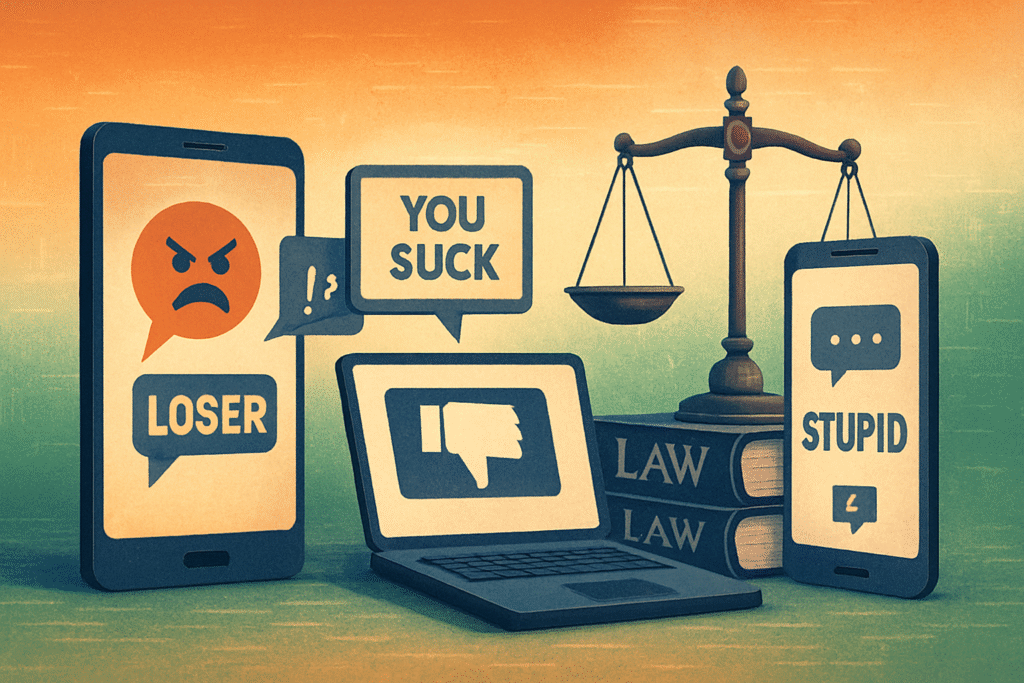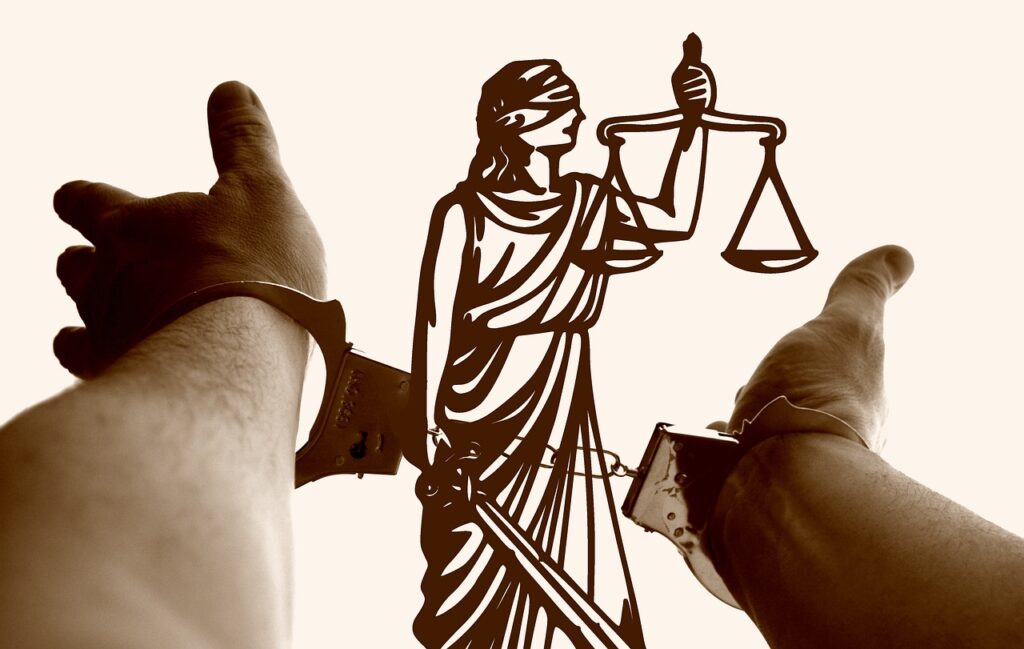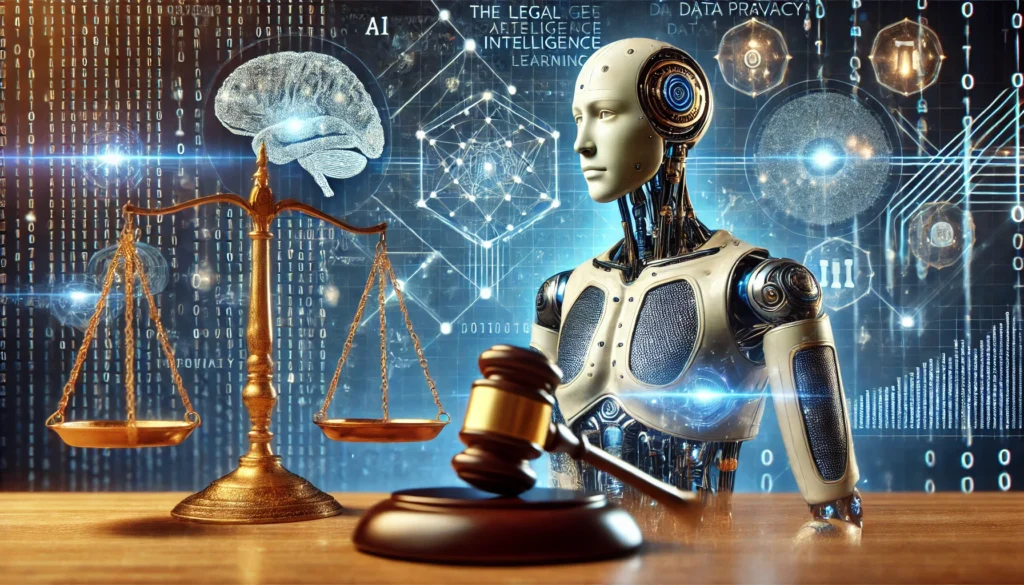Published On: 5th November, 2024
Authored By: Tanuja Kumari
Faculty of law, Delhi University
The UN’s founding fathers, who had witnessed the devastation of two world wars by 1945, derived their primary inspiration from the words “to save succeeding generations from the scourge of war,”[1] which appear among the very first words of the UN Charter (in its Preamble). Since the UN was founded on October 24, 1945, when its Charter went into effect, it has frequently been asked to stop disagreements from turning into war, assist in bringing about peace after an armed conflict breaks out, and support long-lasting peace in post-war societies.
Collective security continues to be an important component in the United Nations System which itself is enshrined in the organization’s charter. For the sake of global peace and security, the UN Security Council is ultimately accountable.
Despite the Security Council’s principal responsibility, the UN Charter allows the General Assembly and non-member nations to participate in matters of security. Any state may bring any conflict or circumstance that jeopardizes global peace and security to the attention of the Security Council or the General Assembly, regardless of whether the state is a member of the UN or not.[2]
The Structure of the United Nations
The UN comprises several principal organs that each contribute to the organization’s mission. These include:[3]
- General Assembly: The primary policy-making, deliberative, and representational body of the UN is the General Assembly. The Charter grants the General Assembly the authority to establish broad cooperative principles for preserving global peace and security, including disarmament, and for the amicable resolution of any dispute that would jeopardize goodwill among nations.
- Security Council: When deciding whether an act of aggression or a threat to the peace exists, the Security Council assumes the primary role. Comprising five permanent members (the United States, Russia, China, France, and the United Kingdom) with veto powers and ten non-permanent members, the Security Council bears the primary responsibility for maintaining international peace and security. The Security Council is authorized to use enforcement actions under UN Charter Chapter VII in order to preserve or re-establish global peace and security.
- The International Court of Justice (ICJ): The ICJ serves as the judicial arm of the UN and resolves legal disputes between states. It plays a role in adjudicating conflicts that might otherwise escalate into military confrontations.
- Trusteeship: Originally, the 11 Trust Territories were put under the supervision of seven member nations, and the Trusteeship Council was established to oversee them. The body was suspended in 1994 after all the regions had achieved independence or self-government. However, the Council voted that year to keep holding sporadic meetings rather than yearly ones.
- The Secretary-General and Secretariat: The Secretary-General serves as the UN’s chief administrative officer and has often played a significant role in preventive diplomacy. Secretaries-general have undertaken “good offices” missions, using their influence to mediate in crises.
- Economic and Social Council: The primary organization for policy assessment, policy discourse, policy suggestions, and coordination on economic, social, and environmental issues—as well as for carrying out the globally recognized development goals—is the Economic and Social Council. The General Assembly selected its 54 members for consecutive three-year mandates.
The Security Council’s Role in Conflict Resolution
Over the years, the UN has played a major role in bringing an end to a number of crises, frequently as a result of the Security Council’s activities. The Security Council is the body that, according to the UN Charter, has primary responsibility for maintaining international peace and security.
In order to defuse conflict, maintain the separation of opposing troops, and establish enduring peace when agreements have been made, it also deploys UN peacekeeping soldiers. The Council has the authority to decide on collective military action, trade embargoes, and economic sanctions.[4]
Throughout its history, the Security Council has played a key role in several important global conflicts:[5]
- The Korean War (1950-1953): The Security Council authorized military action to repel North Korea’s invasion of South Korea.
- The Suez Crisis (1956): The UN played a mediating role in resolving the conflict between Egypt and the tripartite force of the United Kingdom, France, and Israel.
- The Gulf War (1990-1991): The Security Council passed a series of resolutions that led to the expulsion of Iraqi forces from Kuwait.
- The Balkans (1990s): UN interventions in the former Yugoslavia, including peacekeeping and the establishment of international criminal tribunals, contributed to ending the conflict and bringing war criminals to justice.
- Indonesian Dispute with Holland: Countries like Australia and India alerted the International Security Council to Holland’s history of genocide in Indonesia. The Security Council, with representatives from the United States, Belgium, and Australia, formed a Commission to address the matter. Their efforts culminated in The Hague in July 1949 with an agreement between the two nations, resulting in Indonesia’s independence.
Despite these successes, the Security Council’s effectiveness is often constrained by the veto power[6] of its permanent members. The Cold War era, in particular, was marked by frequent deadlocks between the US and the Soviet Union, stalling many potential peace initiatives.
Since the Organization’s establishment in 1945, numerous inter-state conflicts have emerged over the subsequent decades, especially during the Cold War. The world teetered on the edge of World War III during the Cuban Missile Crisis in 1962. Following the dissolution of the USSR and the conclusion of the Cold War, conflicts have continued to arise in African and Middle Eastern countries, as well as in former Soviet republics.[7]
Terrorism has become increasingly common, conducted through various methods, including state-sponsored acts by groups or individuals, with the attacks of September 11, 2001, in the United States being a prominent example. [8]
Some well-documented U.N. efforts that resulted in failure or scandal include:[9]
- The 1994 Rwanda Mission: The U.N. attempted to halt the Rwandan genocide, but failed to prevent the massacre of nearly a million Tutsis by the Hutus.
- Cholera in Haiti: Post the 2010 earthquake, Nepali aid workers led by the U.N. were accused of initiating a cholera outbreak in Haiti, resulting in over 10,000 deaths.
- Oil for Food Program: This program was set up to allow Iraq to trade oil for food and medicine via the U.N. However, it faced allegations of embezzlement by the Iraqi government and U.N. officials.
- Sexual Abuse Allegations: In 2005, U.N. peacekeepers faced accusations of sexual exploitation in the Republic of Congo, with similar claims in Cambodia, Haiti, and elsewhere.
- Crisis in South Sudan: The U.N. peacekeeping mission established in 2011 failed to shield civilians from violence, torture, or sexual assault in South Sudan.
Despite these issues, most international leaders and experts concur that the U.N. remains vital in promoting global peace, stability, and prosperity.
Peacekeeping Operations
United Nations peacekeeping missions are an essential tool used by the international community to promote peace and security.
The inaugural UN peacekeeping mission began in 1948, following the Security Council’s authorization of the United Nations Truce Supervision Organization (UNTSO) deployment to the Middle East to oversee the Armistice Agreement between Israel and its Arab neighbours.[10]
Currently, 11 UN peacekeeping operations are active, and since 1948, a total of 71 have been deployed. The Secretary-General initiated the Action for Peacekeeping Initiative (A4P) in 2019 to rejuvenate the collective political dedication to peacekeeping operations. [11]
Peacekeeping operations typically involve the deployment of military and civilian personnel to conflict zones under the following mandates:[12]
- Monitoring ceasefires and creating buffer zones between opposing forces.
- Protecting civilians and ensuring humanitarian aid reaches affected populations.
- Supervising elections and helping rebuild institutions in post-conflict societies.
- Supporting the disarmament, demobilization, and reintegration (DDR) of former combatants.
UN peacekeepers are drawn from member states and operate under the principle of impartiality, but they must have the consent of the parties involved in the conflict. Notable peacekeeping missions have been deployed in countries like Cyprus, the Democratic Republic of the Congo, Lebanon, and more recently in Mali and South Sudan.[13]
Peacebuilding
Peacebuilding involves aiding countries and regions ravaged by war in their transition from conflict to peace. After hostilities cease, these nations often need help to rebuild governmental institutions that uphold law and order, such as training new police forces and restoring services like health and education that were disrupted by conflict. This process can also encompass disarming, demobilizing, and reintegrating combatants, overseeing elections, and helping refugees return home. Central to peacebuilding is the goal of establishing a new governance system capable of peacefully resolving disputes, safeguarding civilians, and upholding human rights.
The United Nations has significantly contributed to peacebuilding efforts in nations such as Cambodia, El Salvador, Guatemala, Mozambique, Liberia, Bosnia and Herzegovina, Sierra Leone, Kosovo, and Timor-Leste (formerly East Timor). [14]
Countering Terrorism:
The world’s efforts to combat terrorism are increasingly being relied upon by the UN to coordinate. With regard to particular terrorist acts, eighteen global tools against international terrorism have been developed within the framework of the United Nations system. The United Nations Global Counter-Terrorism Strategy was agreed by UN Member States in September 2006. For the first time, a single strategy and operational framework against terrorism was accepted by Member States.[15]
Successes of the United Nations in Maintaining International Peace and Security
The principal role of the United Nations is to preserve international peace and security. Chapter 6 of the Charter allows for the pacific settlement of conflicts, through the involvement of the Security Council, by measures such as negotiation, mediation, arbitration, and judicial rulings.[16]
- Diplomatic Mediation: The UN has successfully mediated numerous conflicts. For example, the UN played a central role in brokering peace in Namibia, ending its prolonged conflict with South Africa and leading to its independence in 1990.
- Post-Conflict Reconstruction: UN missions have supported the rebuilding of institutions in war-torn regions. In Cambodia, for instance, the United Nations Transitional Authority (UNTAC) helped restore political stability after years of conflict.
- Nuclear Non-Proliferation: The UN has worked to prevent the spread of nuclear weapons through the Treaty on the Non-Proliferation of Nuclear Weapons (NPT). The International Atomic Energy Agency (IAEA), although independent, operates within the UN framework to ensure compliance with nuclear safeguards.
- Sanctions and Collective Security: In cases where peaceful measures fail, the UN has resorted to sanctions. Sanctions regimes have been applied to countries such as Iraq under Saddam Hussein, apartheid-era South Africa, and North Korea, as a means of curbing aggressive behavior or weapons proliferation.
Challenges in Maintaining International Peace and Security
Veto Power and Deadlock in the Security Council: The Security Council’s five permanent members wield significant power through their ability to veto resolutions. This has led to deadlock in many critical situations, most notably in Syria’s ongoing civil war, where conflicting interests among the P5 (the five permanent members) have prevented decisive action.
Inadequate Peacekeeping Resources: UN peacekeeping missions are often hampered by limited resources and complex mandates. Peacekeepers can face significant challenges in environments where there is no peace to keep, as seen in places like Somalia (1993) and Rwanda (1994), where early failures resulted in large-scale human suffering.
Sovereignty and Non-Intervention: The principle of state sovereignty remains a fundamental tenet of international law. As a result, the UN sometimes faces criticism for not intervening in states’ internal affairs, even when gross violations of human rights occur, as witnessed in cases like Myanmar’s Rohingya crisis.
Emerging Threats: The UN also faces new challenges, such as terrorism, cyber-attacks, and climate-induced conflicts. These threats transcend borders and require multilateral approaches that can be difficult to implement in a world increasingly divided along nationalist lines.
Failure in Humanitarian Crises: The UN has been criticized for its failures in preventing genocides and mass atrocities, such as in Rwanda (1994) and the Srebrenica massacre (1995). These failures highlighted the need for reform in the UN’s early warning and rapid response mechanisms.
Conclusion
The UN has played a pivotal role in maintaining international peace and security for over 75 years, helping to prevent and resolve conflicts and fostering international cooperation. However, its effectiveness has been limited by geopolitical divisions, especially within the Security Council, and the evolving nature of global threats. As the world faces new and complex challenges, the UN must adapt through reforms and enhanced mechanisms for collective security to remain a cornerstone of global peace efforts.
The UN remains an indispensable actor in the international system, but it must evolve in tandem with the realities of the 21st century to continue fulfilling its foundational mandate of ensuring peace and security for all nations.
Reference(s):
[1] United Nations, “Charter of the United Nations,” October 24, 1945
[2] Cecelia M. Lynch, Junques Fomerand, “Maintenance of international peace and security”( Britannica, 10 Sep. 2014) < https://www.britannica.com/topic/United-Nations/Functions > accessed 6th September 2024
[3] United Nations, ‘Main Bodies’, United Nations (United Nations) <https://www.un.org/en/about-us/main-bodies >accessed 8th September 2023
[4] United Nations, ‘Peace and Security’, United Nations (United Nations) <https://www.un.org/en/global-issues/peace -and-security >accessed 8th September 2023
[5] PasarAbdulkareem Fendi and others, ‘Role of the United Nation Security Council in Resolving International Disputes’ [5th April 2021] 12(2) TJCME 272-274 < https://www.researchgate.net/publication/350851342_Role_of_the_United_Nation_Security_Council_in_Resolving_International_Disputes > accessed 7th September 2024
[6] CFR.org Editors, ‘The UN Security Council’ (CFR, September 9, 2024), < https://www.cfr.org/backgrounder/un-security-council >accessed 8th September 2023
[7] Mohammed Al-Mafrachi,’ The Effectiveness of the United Nations Security Council in Maintaining International Peace’(MCRP thesis, University of Baghdad), (ch.1) https://www.researchgate.net/publication/377151342_The_Effectiveness_of_the_United_Nations_Security_Council_in_Maintaining_International_Peace accesses 7th September
[8] Major Terror groups and networks include but are not limited to Al-Qaeda, Islamic State of Iraq and the Levant (ISIL), Boko Haram, Al-Shabab, Jemaah Islamiyah
[9] History.com Editors,’ United Nations’ (History August 21, 2018)< https://www.history.com/topics/stories/united-nations > accessed 6th September 2024
[10] United Nations, ‘Peace and Security’, United Nations (United Nations) < https://www.un.org/en/global-issues/peace-and-security >accessed 8th September 2023
[11] United Nations, ‘Maintaining International Peace and security’, United Nations (United Nations), < https://www.un.org/en/our-work/maintain -international-peace-and-security >accessed 8th September 2023
[12] What Is Peacekeeping’, United Nations Peacekeeping), < https://peacekeeping.un.org/en/what-is-peacekeeping >accessed 8th September 2023
[13] United Nations, ‘Peace and Security’, UnitedNations (United Nations) <https://www.un.org/en/global-issues/peace -and-security >accessed 8th September 2023
[14] United Nations, ‘Maintaining International Peace and security’, United Nations (United Nations), <https://www.un.org/en/our-work/maintain -international-peace-and-security>accessed 8th September 2023
[15] Ibid
[16] Cecelia M. Lynch, Junques Fomerand, “Maintenance of international peace and security”( Britannica, 10 Sep. 2014) < https://www.britannica.com/topic/United-Nations/Functions > accessed 6th September 2024




